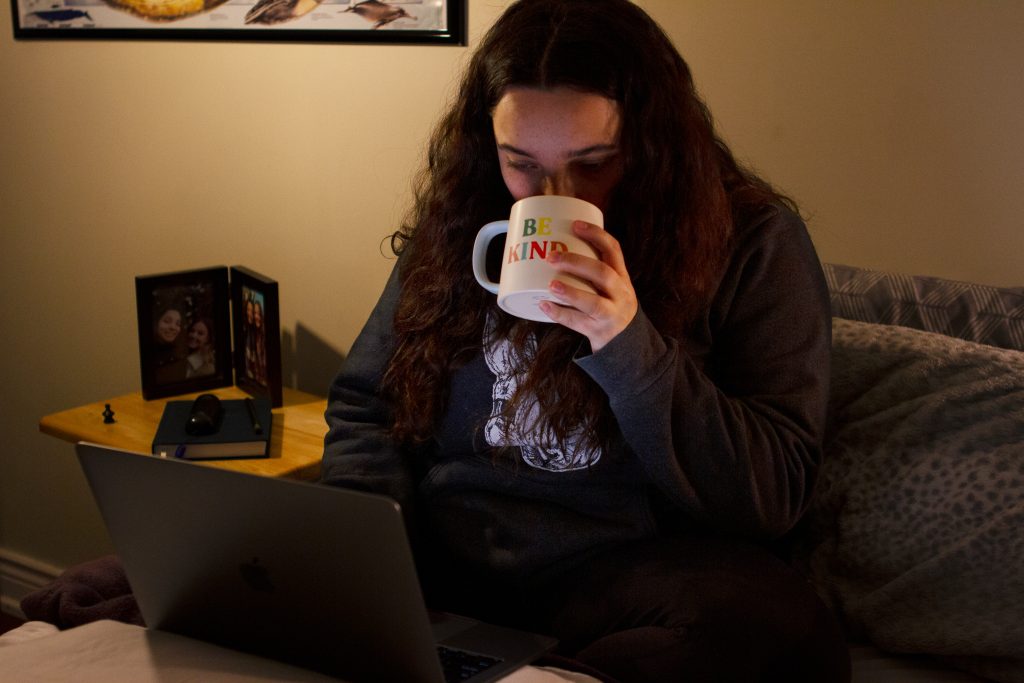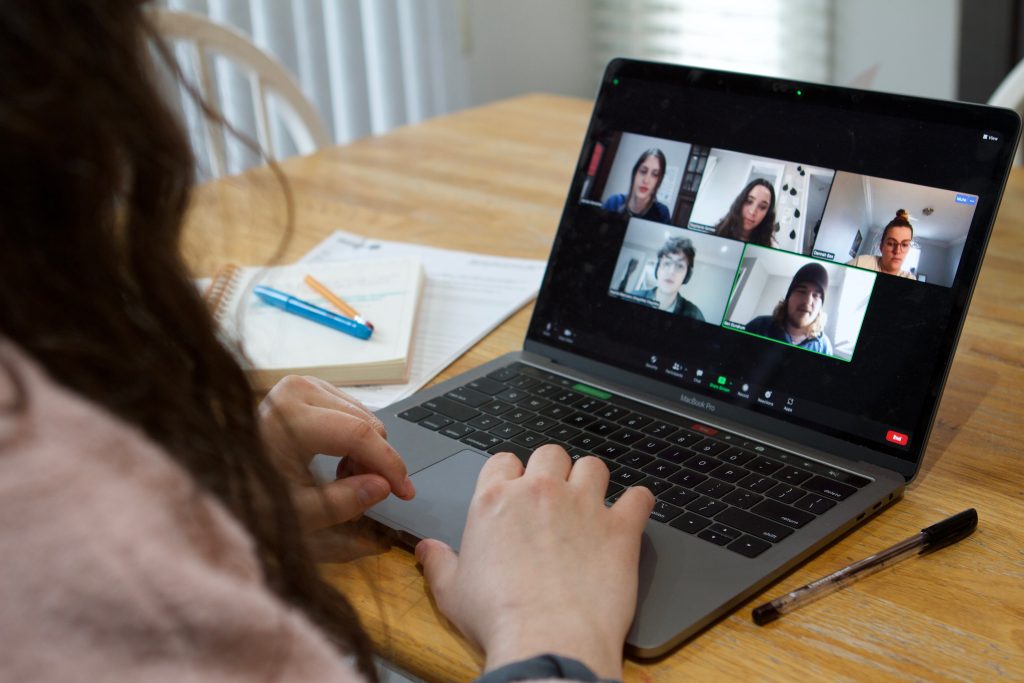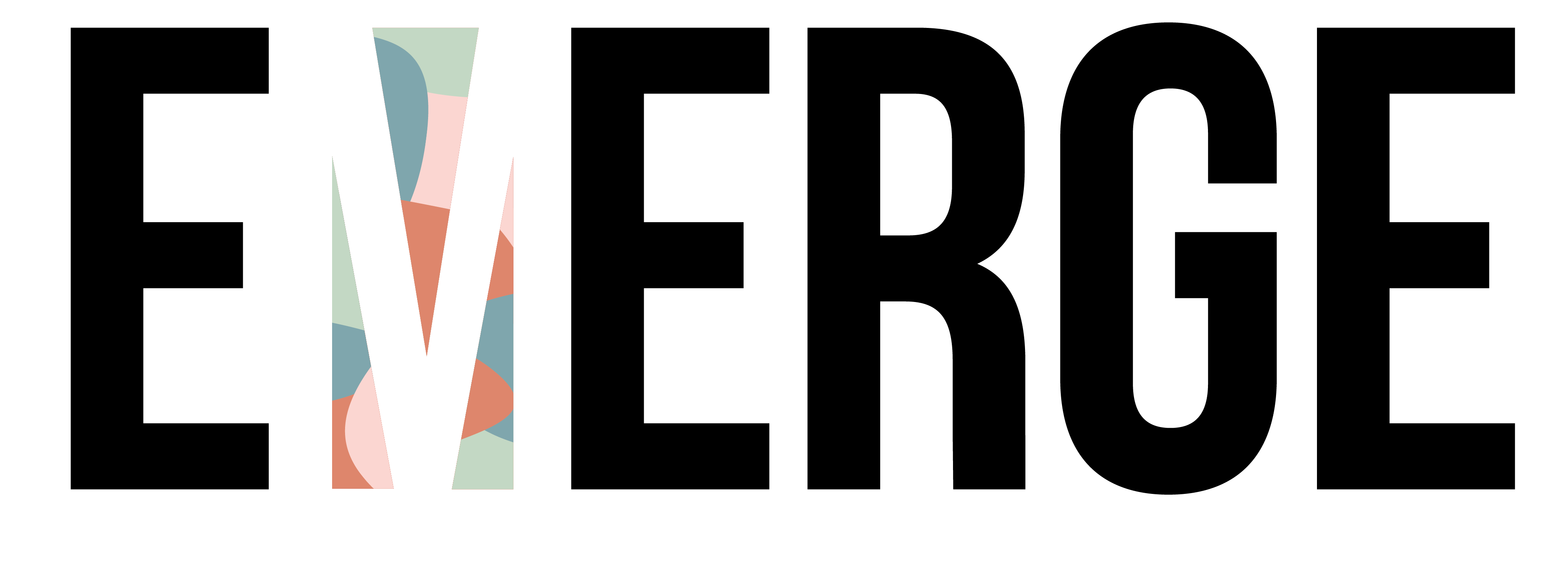Convocation. Last-lecture parties. A successful interview. Your first day on the job. Lunch with new coworkers. All markers of a successful journey of completing post-secondary studies. But what happens when these milestones are taken away, online or forbidden all together?
Pre-pandemic, young graduates and new professionals overlooked these important milestones as mundane beginnings that were part of the typical process of growing up. However, since mid-2020, the pandemic took away something that this generation never even knew they wanted so desperately: connection and stability. The transition to a fully-online life has made an unforeseeable impact, as life flows into a new ‘new normal’ of studying from home, to opening a new tab to start working from home.
What impact has the COVID-19 pandemic had on this generation of young people entering the workforce for the first time?

We asked recently-new professionals about their feelings and state of being after enduring a very unconventional transition into working life.
The consensus reached is that the barrier created from a work-from-home environment has left young adults questioning themselves, and imposter syndrome is heightened without the accolades provided by a physical workplace harbouring human connection. While work-from-home has allowed flexibility and accessibility it has also provided isolation and self-doubt. These small victories – having their first team meeting, sharing workplace gossip with colleagues, having drinks after a stressful week – normally give young adults the necessary reassurance and motivation they need to endure the path ahead. However, ever since the pandemic began depriving people of these experiences, they are sometimes not so sure anymore.


Q: Did working from home make you feel alienated from your coworkers?
M: Yes. It got easier in some aspects over time, but most of my job was made up of being social, so it was tough. Not getting to brainstorm one on one with senior staff, have team lunches, go out to grab a coffee and chat with my coworkers made me feel like I was losing my connection with those who I didn’t work with as frequently. Being able to peer over your computer and share an eye roll with your colleague when a client is being ridiculous on a call was something I didn’t realize I needed to really destress from my work, and a large part of the reason I eventually chose to leave the agency I was working at during the first year of the pandemic was because of this disconnect.
H: I find myself a lot less productive working from home and I’ve noticed that my social skills have decreased significantly. Furthermore, I think a lot of miscommunication occurs because you can not just go up to a co-worker and you have to send out an email or message, wait for replies and so forth. I find it difficult to set a routine for myself. I also get nervous to ask questions because I cannot see my coworkers’ reactions. For example, if I’m bothering or annoying them.
Q: Have you experienced imposter syndrome?
M: I think that’s something I deal with every day because I will always know in the back of my head that there’s someone who knows more than me, someone who’s probably more qualified for my job, someone who would be willing to work harder than me. It’s tough knowing that there’s no way I can know everything, but still wanting to.
H: Yes, I think it’s very common and prevalent as a young adult to feel that you don’t belong or aren’t as skilled to some degree.
Q: If so, did the wfh environment contribute to this?
M: Partially, I’ve definitely had this feeling since I entered the industry, but I know that pre-pandemic I could lean on my coworkers a bit more often for guidance to get over the doubts I had in myself when it came to work-related tasks.

H: I do have a feeling of guilt sometimes because I’m working from the comfort of my own home, I sometimes feel like this impacts the quality of my work negatively. For example, being able to go for a walk in the middle of the workday without reporting to a manager adds to the guilty feeling at times. I find myself working longer hours to cope with the feeling of imposter syndrome. I see myself checking my email and replying to emails after work hours because I feel like I haven’t accomplished as much as I could during work hours.
Q: How do you cope with wfh and imposter syndrome?
M: I started to take more phone breaks to text back my friends. In the office, I felt too guilty doing anything other than work – social media for my clients – on my phone, but now I realize that the few seconds spent messaging someone back is equivalent to the ‘water cooler’ chats I would’ve had in the office anyways [sic]. My current workplace is great with encouraging bi-weekly chats with randomized groups so that coworkers can talk to each other about non-work-related things. As for the imposter syndrome, it never really goes away, but I have gotten better at making myself realize that I get so many amazing work opportunities because others recognize how valuable my work is. Whether it’s a freelance project or a task from a different department, people know they can count on me to accurately get a job done while still bringing in my own creative take.
Q: Do you feel that wfh impacted major milestones in your young adult life?
M: I think the feeling of being a successful industry employee was diminished by sitting in my room with a laptop, which is basically what I have been doing since high school. Starting off my career in the industry by going to a physical office was a great feeling, but it was a small space and team. When I eventually found my way into the corporate world, I never got the experience of walking into a big building, going to my desk, doing in-person meetings, etc. which is something I’d envisioned my whole life, it was a feeling I was really after. I recently got hired at one of the biggest Entertainment Media companies in the country, and I feel like I’m not as excited as I would be, since it’ll just be a random Monday that I turn my computer on and get to work. I want to be able to walk into this massive building, see the hustle and bustle of thousands of employees, walk past television personalities and see green screens and cameras everywhere. It’s the environment that I crave because I think being there would make me feel a lot more accomplished in a sense. Work-from-home has changed my ability to have personal relationships with other industry professionals and made me a little less motivated to work – there’s no excitement of seeing what’s going to go on in the office, it’s just me and my laptop at home. On the other hand, if it were not for the fact that I work from home, I don’t think my career would’ve pivoted from PR to Social Media as much as it has. I did a lot of traditional PR, writing, mailers, and such that required me to keep within the office, but with the absolute boom of TikTok and Instagram Reels, I started picking up my own phone and making videos on my personal page. As low-effort as they were, it led to a ton of doors opening for me – brands wanting me to create video content for their socials on a freelance basis, and ultimately, getting into Entertainment Media all because someone from the company saw me on their “for you page” and thought I’d be a good fit for their team.
H: Absolutely, I remember being very excited to go into the office but it was very different from what I had imagined. Almost everyone was working from home. So the office only had about 10 people out of about 60 to 70. It was very quiet and lonely. Something I did not expect at all. I was really envisioning office chatter and people running around but everyone mostly kept to themselves. I always thought there would be an office full of people who I would have the opportunity of meeting. I’ve never met anyone from my team in person and I have been working with this team for nearly six months. I do wish I got to experience the in-office experience, build those relationships with my co-workers and put a face to all the names in my chat. So I definitely missed out on networking. I also feel like I haven’t really graduated since my commencement was done over Zoom. Graduating did not feel as impactful and memorable as I imagined it would. There is definitely a disconnect that leaves me in a really weird spot as a young professional.
Q: What tips do you have for future grads?
M: My advice to future grads is to not limit yourself to what you think you can do in the field of Media. Choosing a major – for me, it was PR – doesn’t mean you don’t have the skills and knowledge to explore a different facet. The media industry is massive and there are so many opportunities available if you’re willing to say that you want it and willing to ask for help when you need it. Don’t let your experience in school make you feel like you cannot go on to accomplish anything, and on the other hand, if you do feel like you’re one of those people who’s on top of the world in university, give yourself a bit of reality check by remembering there will still be lots to learn once you enter the workforce. Many professors do not know anything about you as a person and a grade does not define your technical abilities, so don’t base your potential for success on either factor. Above all, remember you are still young and while you’re growing up and entering adulthood, you have the rest of your life to sit at a boring office job that will make ends meet in the future – do something that excites you while you’re young and still can.


H: I recommend making a strong online networking profile such as LinkedIn, attending any work virtual events and building a routine for yourself. Having a work area with lots of light encourages productivity as well as taking frequent breaks. Take part in any activities that allow you to network with colleagues or be the first to reach out. Always remember you are not the only one feeling this way and your coworkers may be able to relate to some of the same struggles you are experiencing. It is vital to keep in mind that you definitely deserve the opportunities being given to you.




